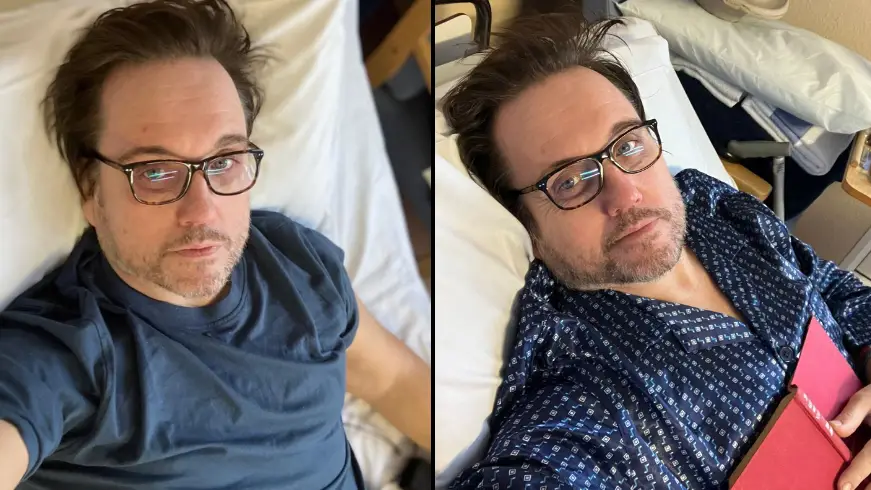
A man has bravely told how he was forced to have his penis amputated after being diagnosed with a rare form of cancer.
While recovering from a heart attack, Shaun Evans explained that he noticed what appeared to be a 'bad bruise' on his manhood in June 2022 - and although he initially shrugged this off, further symptoms then soon began to arise.
The 55-year-old, from Wolverhampton, started to grow concerned when he spotted blood while showering, as well as something which resembled a 'cold sore' at the base of his penis.
He raised his worries with the doctor who was treating him for his other health woes which had taken place earlier that year, who referred him to a specialist so that a biopsy could be taken.
Advert
But because Shaun was on blood thinning medications following his heart attack, he ended up having to wait several months for it - while his symptoms continued to worsen.
Discussing the signs he noticed, he explained: "I started feeling uncomfortable. There was a soreness down below. It was like a bad bruise. In July, I was bathing in the shower. I noticed a bit of watered down blood.
"It was coming from my penis. I was a bit startled - I was alarmed."

He recalled how he then ended up in so much pain that he simply couldn't walk, resulting in him calling 999 and being rushed to hospital, shortly before medics informed him of his diagnosis.
"The swelling had turned into a big lump, it was horrible," Shaun explained. "I could just shuffle."
The Brit was then told that he had penile cancer - which, according to the NHS, is a rare form of the disease that is most common in men over 50 and usually affects the skin of the penis and the foreskin.
Although some patients can receive non-surgical treatments depending on the severity of their condition, doctors left Shaun devastated after they told him he needed to have his penis amputated.
"I thought, 'How the hell is this going to return to normal?' I was obviously gutted," he said.
Two days before Christmas in 2022, Shaun underwent the life-changing operation which spanned five hours at the Heartlands Hospital in Birmingham.
The former police support worker recalled how a consultant explained that she had no choice but to remove his manhood, as she told him: "I think I have got it all. I managed to retain what goes on beneath the surface."
Despite being relieved that he had received treatment, Shaun says the time after his amputation was 'the loneliest he had felt in his life'.
"It was just numbness. It can seriously effect masculinity," he said. "I went through all the emotions. I thought 'I'm a freak', 'no one is going to want you'."
Then he told himself: "This is the new Shaun. People are going to accept you as you are."

Shaun could potentially have penis reconstruction surgery in the future, however, patients have to be cancer-free for five years before doctors will perform the complex operation.
He has decided to share his story about learning to live without a penis in the hopes of inspiring others who might be in the same boat, while also raising awareness of penile cancer.
Shaun bravely spoke out about how he has had to adapt in a myriad of different ways - including sitting down while he urinates, as surgeons had to rearrange the position of his urethra, saying: "I go to the toilet like a lady."
He now has a scan every three months to confirm that he is still cancer-free, but he is just glad to be out of pain.
Shaun added: "I'm taking it day by day. It's the little things, like being able to sit."
Although penile cancer is rare in the UK, with Cancer Research explaining there are around 760 new cases each year, experts reckon this number will spike to 1,100 every 12 months by 2038-2040.
The NHS urges men to look out for any growths, lumps or sores on the penis which don't heal within four weeks, a rash, bleeding, a foul smelling discharge, difficulty drawing back your foreskin and a change of colour.
Other symptoms of penile cancer may include a lump in your groin, feeling tired, tummy pain and losing weight without trying - so keep an eye out, lads.
If you’ve been affected by any of these issues and want to speak to someone in confidence, contact Macmillan’s Cancer Support Line on 0808 808 00 00, 8am–8pm seven days a week.